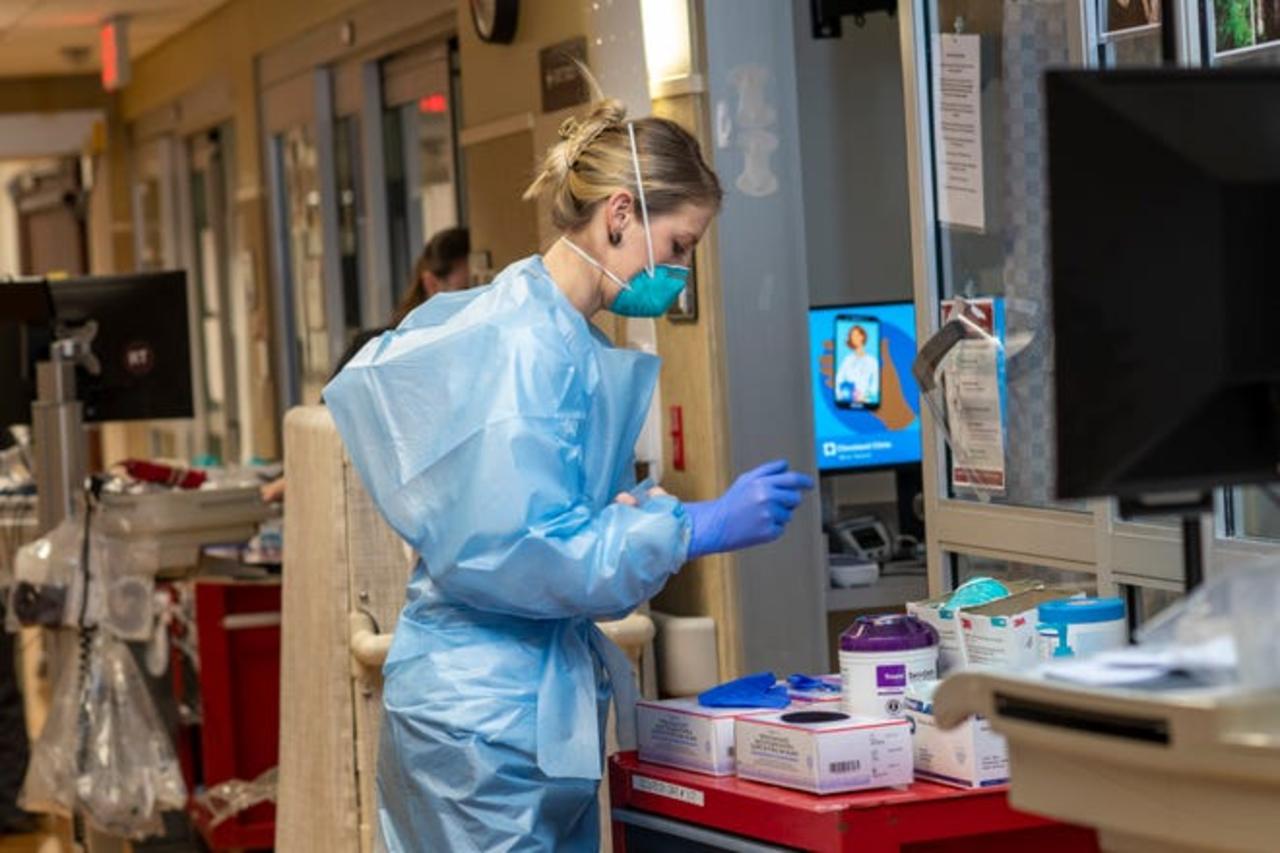
Experts Say Omicron Variant Is, 'Unlike Anything We've Ever Seen'.
Experts Say Omicron Variant Is, 'Unlike Anything We've Ever Seen'.
CNN reports the explosion of Omicron-related coronavirus cases are filling up hospitals in the United States.
Last week, the country recorded a new all-time pandemic high of 300,886 average new daily cases.
It's unlike anything we've ever seen, even at the peak of the prior surges of Covid.
, Dr. James Phillips, George Washington Emergency Medical, via CNN.
According to CNN, some regions of the U.S. are experiencing up to a 200% increase in COVID-19 hospitalizations.
Officials say health care providers around the country are concerned they could soon reach capacity.
Officials say health care providers around the country are concerned they could soon reach capacity.
We're seeing an increase in admissions that is startling.
, Dr. Catherine O'Neal, chief medical officer at Our Lady of the Lake Regional Medical Center.
According to U.S. Health and Human Services, almost 78% of the nation's ICU beds are currently in use.
According to U.S. Health and Human Services, almost 78% of the nation's ICU beds are currently in use.
22% of those occupying ICU beds are COVID-19 patients.
Per the U.S. Centers for Disease Control and Prevention (CDC), the unvaccinated "are 17 times more likely" to experience hospitalization due to COVID-19.
Per the U.S. Centers for Disease Control and Prevention (CDC), the unvaccinated "are 17 times more likely" to experience hospitalization due to COVID-19.
What I can tell you is that compared to people who are boosted, if you are unvaccinated, you are 10 times more likely to be a case and 20 times more likely to be a fatality.
, Dr. Rochelle Walensky, CDC Director, via CNN.
What I can tell you is that compared to people who are boosted, if you are unvaccinated, you are 10 times more likely to be a case and 20 times more likely to be a fatality.
, Dr. Rochelle Walensky, CDC Director, via CNN
